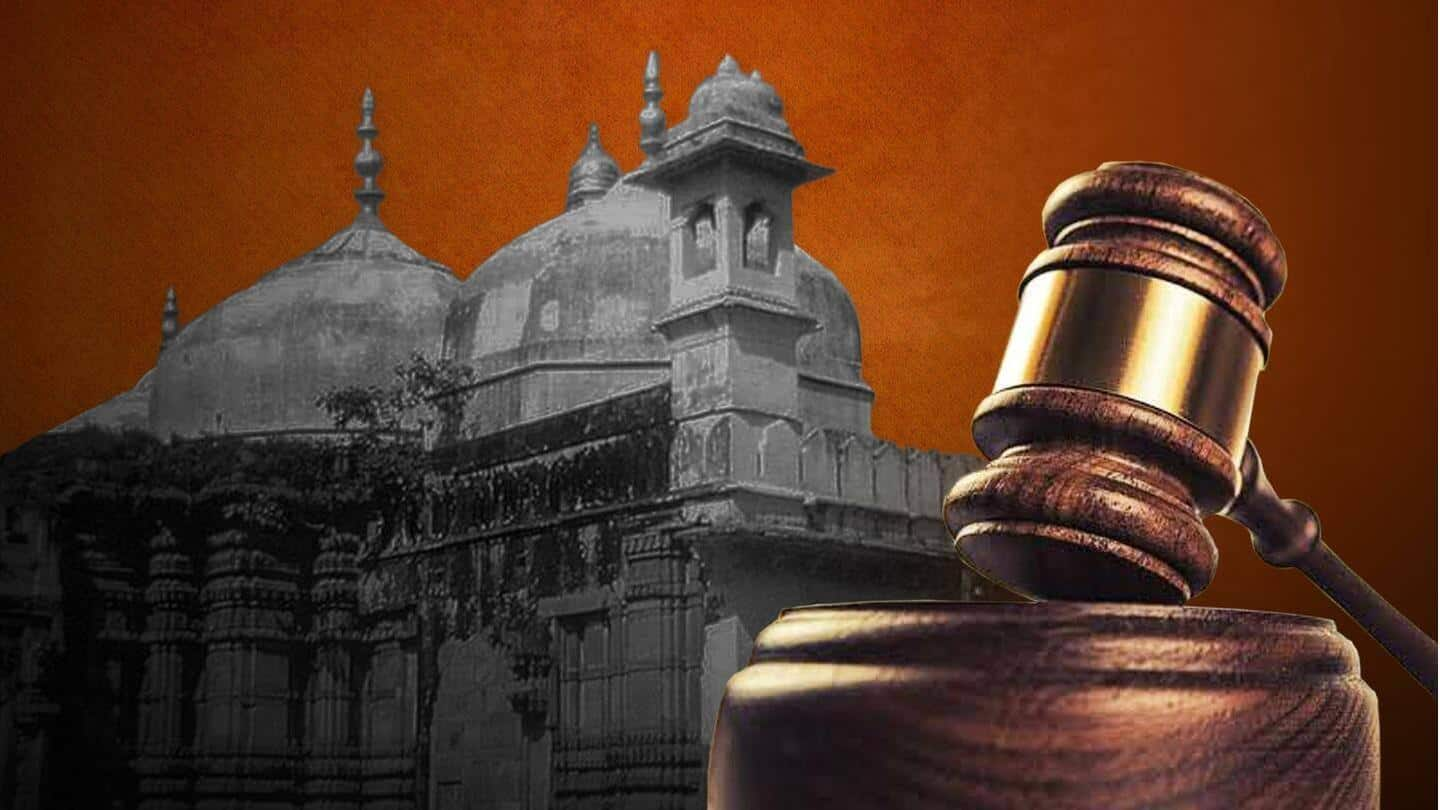
Varanasi court adjourns Gyanvapi Mosque case hearing till July 12
What's the story
The Varanasi court on Monday adjourned the hearing in the Gyanvapi Mosque case till July 12.
Earlier on May 30, the court had deferred the hearing on the Anjuman Intezamia Masjid (AIM) Committee's plea challenging the maintainability of the petitions filed by the Hindu side seeking a survey of the mosque premises till Monday.
The AIM lawyer presented 51 arguments during the hearing.
Context
Why does this story matter?
After a Shivling was allegedly found inside the mosque complex, a Varanasi court directed to seal the spot. However, AIM said it was part of the wazukhana's fountain.
The Supreme Court had ordered the authorities to protect the area without hindering Muslims' access to namaz.
The SC had asked the court to decide whether the videography and the survey petition were 'maintainable' or not.
Courtroom
Media barred from attending proceedings
Earlier, the district court had ordered that only the lawyers involved in the case be present at the hearing.
Thereafter, a list of around 40 people, including lawyers and litigants, permitted to enter courtroom was given to the police deployed at the scene.
No other person was allowed entry. The media was also been barred from attending the proceedings.
Petitions
Demands made in petitions
The Hindu side sought permission for daily worship of the Shringar Gauri in the mosque complex, permission to worship the alleged Shivling, a survey to determine the length and width of the Shivling, and a provision for an alternate wuzukhana arrangement.
Meanwhile, the Muslim side pleaded that the matter didn't meet the parameters of the Places of Worship Act and wanted the matter dismissed.
Information
Court-appointed videography team submitted survey report on May 19
The court-appointed videography team submitted its final survey report of the Gyanvapi Mosque complex to the civil court on May 19. The top court had ruled that because civil litigation is sensitive, a district court judge should hear the case instead of the civil judge.
Context
Controversy began in 1991 after petitions against mosque
In 1991, lawyer Vijay Shankar Rastogi had filed a petition in a Varanasi court as the "next friend" of the Kashi Vishwanath Mandir's presiding deity.
Rastogi had argued that Maharaja Vikramaditya built a temple 2,050 years ago on the site where the mosque stands.
Other petitioners claimed Aurangzeb built the mosque in the 17th century by removing a portion of the Kashi Vishwanath Mandir.
Background
1991 case was on hold for years
The 1991 case was on hold for several years until the Allahabad High Court suspended the hearing.
The HC's decision was based on the Places of Worship Act, 1991, forbidding any changes to the religious character of a place of worship as it was on August 15, 1947.
However, the case resurfaced in 2019 following the SC's decision in the Babri Masjid-Ram Janmabhoomi case.
Do you know?
The Places of Worship Act, 1991, is upheld by SC
The Supreme Court has consistently upheld the Places of Worship (Special Provisions) Act, 1991, while granting an exception only in the Babri Masjid-Ram Janmabhoomi case, stating in the judgment itself that the law would apply in all the other cases.